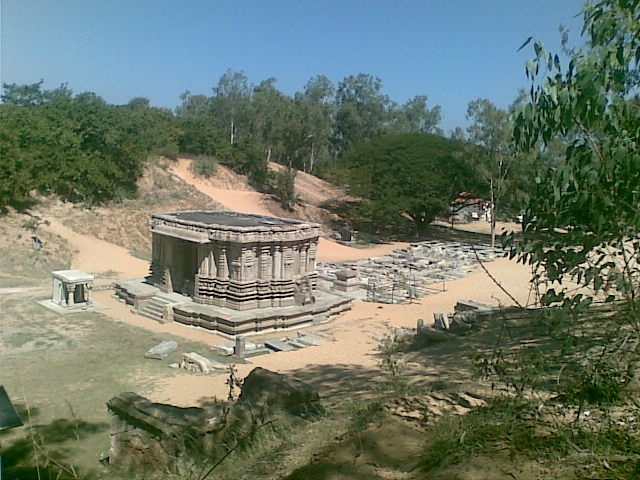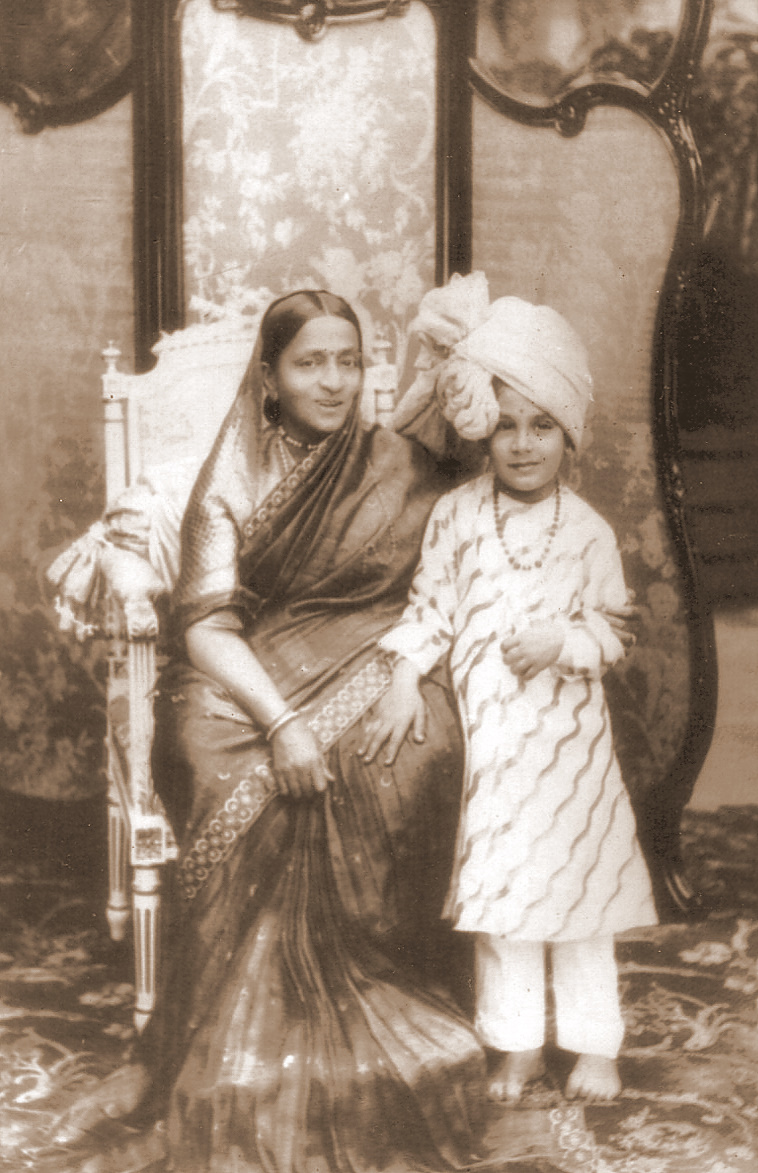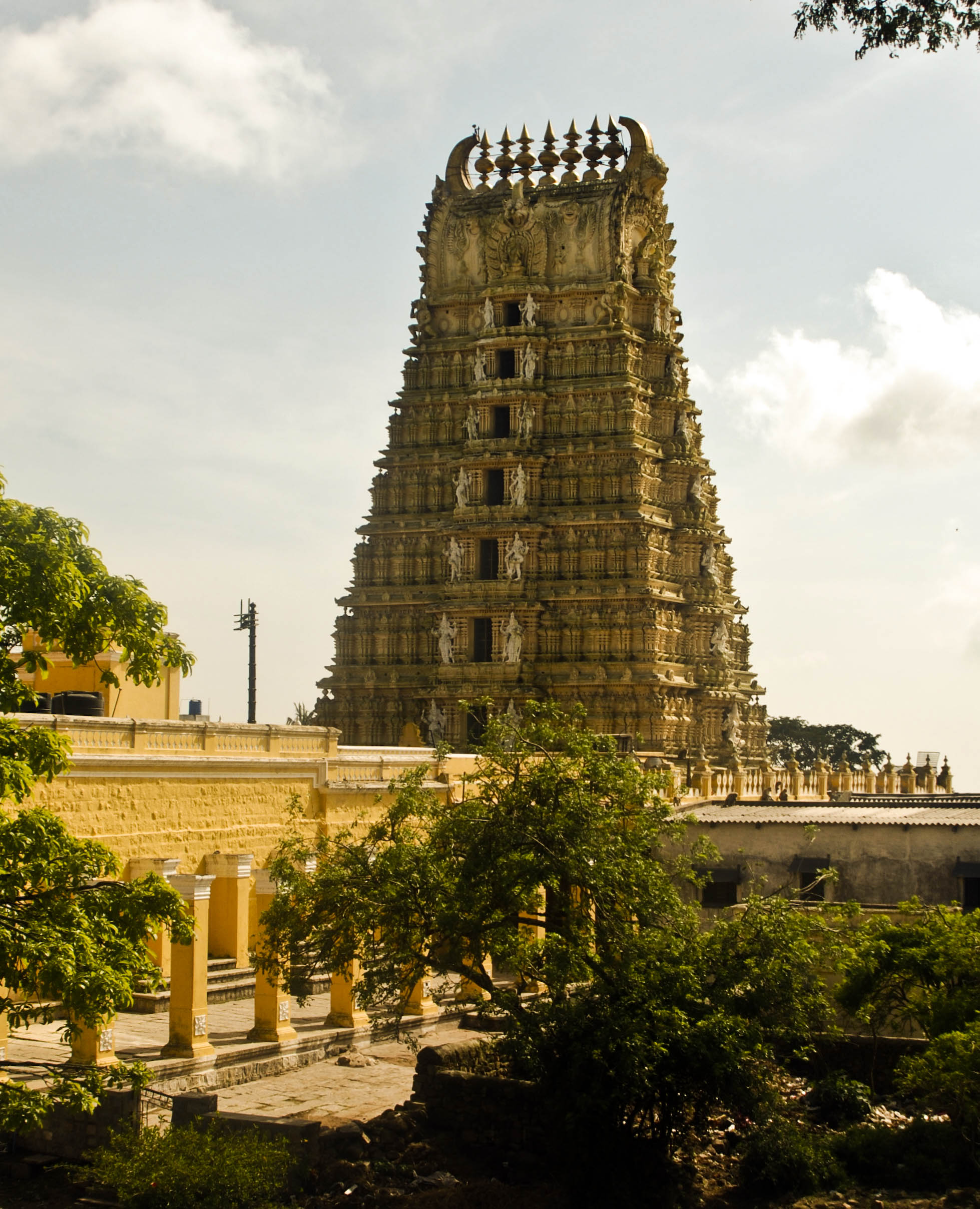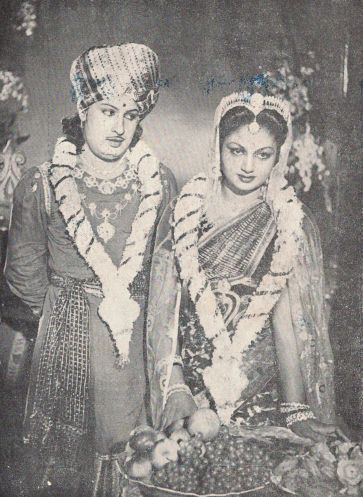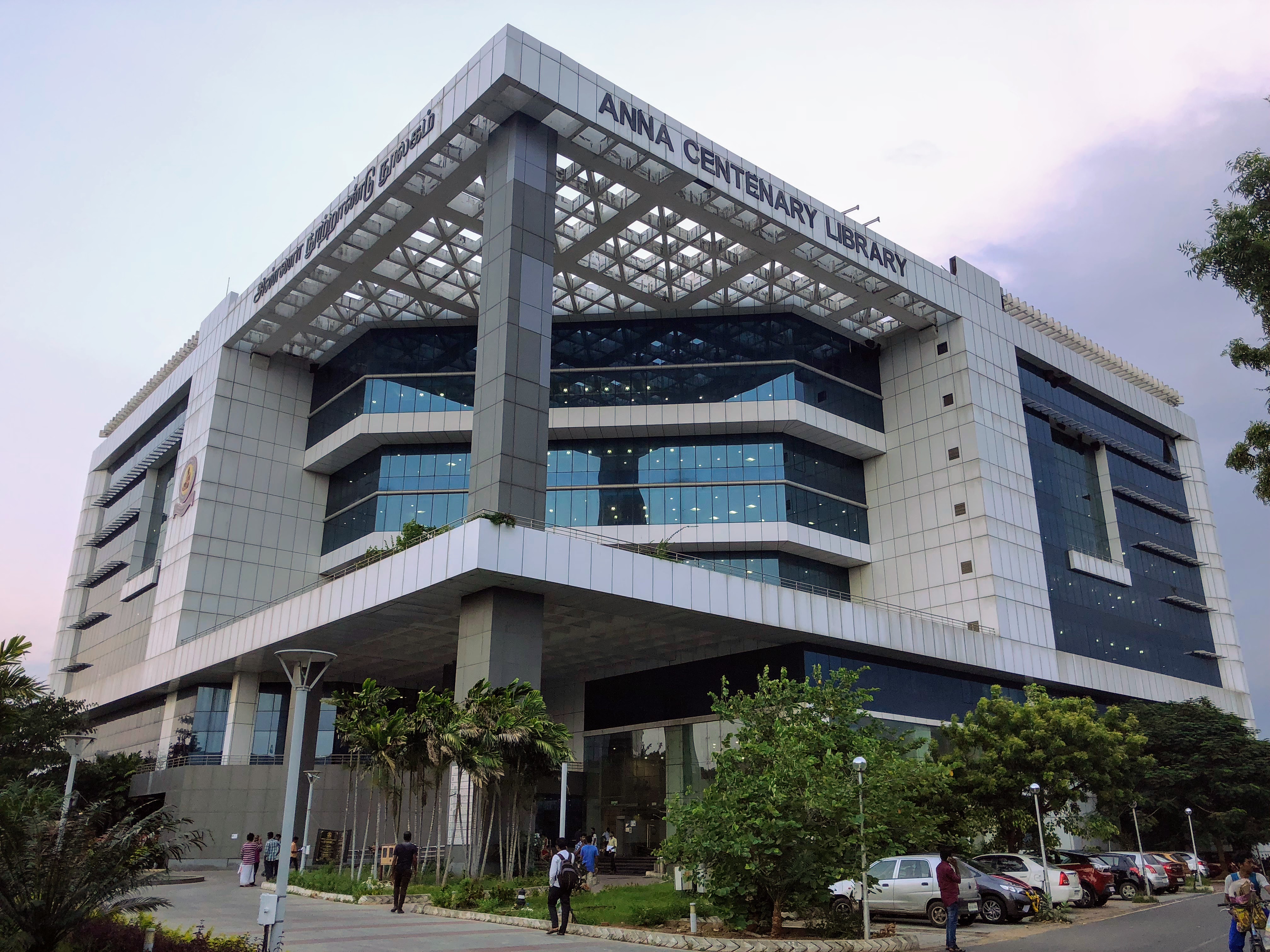|
Chitti Babu (musician)
Chitti Babu (13 October 1936 – 9 February 1996) was a classical musician from India, and arguably one of the greatest Veena artistes, in the Carnatic Music genre of South India, who became a legend in his own lifetime. His name was synonymous with the musical instrument Veena, and he was and still is known in the Carnatic Music world, simply as Veena Chitti Babu.https://www.thehindu.com/features/friday-review/music/Chittibabu-remembered/article15718373.ece Early childhood and career Chitti Babu Challapally (surname) was born on 13 October 1936, in Kakinada, Andhra Pradesh, India, to music-loving parents, Ranga Rao Challapally and Sundaramma Challapally, who had initially named him Hanumanlu, when he was born. Chitti Babu was his nickname at home, which came to stay eventually, after his father formally changed it to be so. He was a child prodigy who started playing Veena at the age of 5. He had a providential beginning, when at that early age, he corrected his father playing ... [...More Info...] [...Related Items...] OR: [Wikipedia] [Google] [Baidu] |
Kakinada
Kakinada (; formerly known as Cocanada) is a Port, port city and municipal corporation in the Indian state of Andhra Pradesh. Situated along the Bay of Bengal, it serves as the headquarters of Kakinada district and is a prominent economic and cultural centre in the region. It is the sixth most populous city in the state and is recognised as one of India's most livable and cleanest cities among those with a population under one million. Nicknamed the "Pensioners' Paradise," Kakinada is known for its well-planned layout and modern infrastructure. The city rose to prominence in the mid-19th century, when the decline of the nearby Coringa port, caused by natural disasters and silting, redirected trade activities to Kakinada port. It became the administrative headquarters of the Godavari district in 1859, further growing as a cotton export hub during the American Civil War. By the late 19th century, Kakinada emerged as one of India's largest ports and the most significant in the Andh ... [...More Info...] [...Related Items...] OR: [Wikipedia] [Google] [Baidu] |
Kannadasan
Muthiah Sathappan Chettiar better known as Kannadasan (; 24 June 1927 – 17 October 1981) was a poet, film song lyricist, producer, actor, script-writer, editor, philanthropist, and is heralded as one of the greatest and most important lyricists in India. Frequently called ''Kaviarasu'', With over 5000 lyrics, 6000 poems and 232 books, Kannadasan is widely known by the sobriquet Kaviarasu (King of poets) and he is also considered to be the greatest modern Tamil poet after Subramania Bharati. including novels, epics, plays, essays, his most popular being the 10-part religious book on Hinduism, ''Arthamulla Indhu Matham'' (''Meaningful Hindu Religion''). He won the Sahitya Akademi Award for his novel ''Cheraman Kathali'' in the year 1980 and was the first to receive the National Film Award for Best Lyrics, given in 1969 for the film '' Kuzhanthaikkaga''. Like many great poets he also suffered from cyclothymia, which comes under bipolar disorder spectrum. Personal life ... [...More Info...] [...Related Items...] OR: [Wikipedia] [Google] [Baidu] |
Donaueschingen Festival
The Donaueschingen Festival, or more precisely ''Donaueschingen Music Days'' (), is a three-day October event presenting new music in the town of the same name, where the Danube River starts, at the edge of the Black Forest in southern Germany. Founded in 1921, it is the oldest festival for contemporary music in the world. History In 1913, the ''Donaueschingen Society of Friends of Music'' was founded under the auspices of the House of Fürstenberg. The idea soon arose to establish a small festival for presenting young and promising artists. A committee of distinguished musicians, among them Ferruccio Busoni, Joseph Haas, Hans Pfitzner, Arthur Nikisch and Richard Strauss, met in 1921 to discuss possible formats for the event. The first concert was presented just a few months later. On 31 July 1921 the ''Donaueschingen Chamber Music Performances for the advancement of contemporary music'' (''Donaueschinger Kammermusikaufführungen zur Förderung zeitgenössischer Tonkunst'') ga ... [...More Info...] [...Related Items...] OR: [Wikipedia] [Google] [Baidu] |
Wodeyar
The Wadiyar dynasty,() also referred to as the Wadiyars of Mysore (also spelt Wodeyer, Odeyer, and Wadeyar), is a late-medieval Indian royal family of former maharajas of Mysore from the Urs clan originally based in Mysore city. The Wadiyar dynasty claims descent from the Yaduvanshi Jadaun Rajputs who migrated from Gujarat to Vijayanagara. Here they assumed the title ‘Wadiyar’ which stands for ‘Lord’ in the local Kannada language. As Maharajas of Mysore, the Wadiyars ruled the Kingdom of Mysore from the late 1300s until 1950. Members of the Wadiyar dynasty and the Urs clan have also been royal advisers as dewans to their reigning siblings, cousins, nephews, or distant relatives. Some members have also commanded army divisions as ''dalvoys'' (commander-in-chief) for their reigning monarch. During the late 14th century, the family was originally ''poleygars'' (Kannada for garrison) defending the regions in and around Mysore town for the Vijayanagara Empire, their ... [...More Info...] [...Related Items...] OR: [Wikipedia] [Google] [Baidu] |
Jayachamarajendra Wodeyar
Jayachamarajendra Wadiyar (18 July 1919 – 23 September 1974), sometimes simply Jayachamaraja Wadiyar, was the twenty-fifth and last ruling Maharaja of Mysore, reigning from 1940 to 1950, who later served as the governor of Mysore until 1964 and as governor of Madras from 1964 to 1966. Wadiyar ascended the throne upon the sudden demise of his uncle Maharaja Krishnaraja Wadiyar IV. His reign as King began in 1940 during the onset of World War II in Europe and concluded with his merging the Kingdom into the Dominion of India in 1947 but continued as maharaja until India's constitution into a republic in 1950. Kuvempu, his Kannada teacher and the vice-chancellor of Mysore University, remarked upon his ceding the kingdom: "Whereas kings have become so upon assuming thrones, he became a great king by renouncing one". C. Hayavadana Rao, a noted historian, referred to the maharaja in the preface of his unfinished book as a "supporter of every good cause aiming at the moral and ma ... [...More Info...] [...Related Items...] OR: [Wikipedia] [Google] [Baidu] |
Mysore
Mysore ( ), officially Mysuru (), is a city in the southern Indian state of Karnataka. It is the headquarters of Mysore district and Mysore division. As the traditional seat of the Wadiyar dynasty, the city functioned as the capital of the Kingdom of Mysore for almost six centuries (). Known for its heritage structures, palaces (such as the famous Mysore Palace), and its culture, Mysore has been called the "City of Palaces", the "Heritage City", and the " Cultural capital of Karnataka". It is the second-most populous city in the state and one of the cleanest cities in India according to the Swachh Survekshan. Mysore is situated at the foothills of the Chamundi Hills. At an altitude of above mean sea level, the city of Mysore is geographically located at 12° 18′ 26″ north latitude and 76° 38′ 59″ east longitude. It is about southwest of the state's capital, Bangalore, and spreads across an area of (city and neighbouring census towns). The population of th ... [...More Info...] [...Related Items...] OR: [Wikipedia] [Google] [Baidu] |
Maharajah
Maharaja (also spelled Maharajah or Maharaj; ; feminine: Maharani) is a royal title in Indian subcontinent of Sanskrit origin. In modern India and medieval northern India, the title was equivalent to a prince. However, in late ancient India and medieval south India, the title denoted a king. The form "Maharaj" (without "-a") indicates a separation of noble and religious offices, although since in Marathi the suffix ''-a'' is silent, the two titles are near homophones. Historically, the title "Maharaja" has been used by kings since Vedic times and also in the second century by the Indo-Greek rulers (such as the kings Apollodotus I and Menander I) and then later by the Indo-Scythians (such as the king Maues), and also the Kushans as a higher ranking variant of "Raja". Eventually, during the medieval era, the title "Maharaja" came to be used by sovereign princes and vassal princes, and the title "Maharajadhiraja" was used by sovereign kings. Eventually, during the Mugh ... [...More Info...] [...Related Items...] OR: [Wikipedia] [Google] [Baidu] |
Sangeetha Choodamani
Sangeetha Choodamani () is an award bestowed on selected carnatic musicians by Sri Krishna Gana Sabha, Chennai (India) every year. The Sabha conducts a music festival called '' Gokulashtami Sangeetha Utsavam'' for 60 days during August - October. On the inaugural day of the festival, a Carnatic Music Carnatic music (known as or in the Dravidian languages) is a system of music commonly associated with South India, including the modern Indian states of Andhra Pradesh, Karnataka, Kerala, Tamil Nadu, Telangana and southern Odisha. It is o ...ian of merit and popularity is honoured with this award that carries a cash award, a gold medallion, a scroll and a shawl. Recipients of the Award References {{reflist Indian music awards Carnatic music 1971 establishments in Tamil Nadu Awards established in 1971 ... [...More Info...] [...Related Items...] OR: [Wikipedia] [Google] [Baidu] |
Shankar Dayal Sharma
Shankar Dayal Sharma (; 19 August 1918 – 26 December 1999) was an Indian lawyer and politician who served as the President of India from 1992 to 1997. Born in Bhopal, Sharma studied at Agra, Allahabad and Lucknow and received a doctorate in constitutional law from the University of Cambridge and was a bar-at-law from Lincoln's Inn and a Brandeis Fellow at Harvard University. During 1948–49, Sharma was one of the leaders of the movement for the merger of Bhopal State with India, a cause for which he served eight months' imprisonment. A member of the Indian National Congress party, Sharma was chief minister (1952–56) of Bhopal State and served as a cabinet minister (1956–1971) in the government of Madhya Pradesh holding several portfolios. Sharma was president of the Bhopal State Congress Committee (1950–52), Madhya Pradesh Congress Committee (1966–68) and of the All India Congress Committee (1972–74). He served as Union Minister for Communications (1974–77) ... [...More Info...] [...Related Items...] OR: [Wikipedia] [Google] [Baidu] |
Tanguturi Anjaiah
Tanguturi Anjaiah (1919–1986), popularly known as T. Anjaiah, was an Indian politician who served as the 7th Chief Minister of Andhra Pradesh from October 1980 to February 1982. He won from Ramayampet Assembly Constituency. Background Tanguturi Anjaiah was born on August 16, 1919. His parents belonged to Bhanoor village in Medak district. Anjaiah studied in Sultan Bazar High school. He couldn't pursue further education after matriculation due to financial difficulties so he started working at Hyderabad Allwyn for a daily wage of 4 anna (equal to 24 paisa). Anjaiah faced many adversities in his early life which made him a fighter for the cause of social justice. Caste controversy As per Anjaiah's grandson, Abhishek Reddy, Anjaiah's real name was Ramakrishna Reddy, and he belonged to the Reddy caste, rather than to the Dalit community as was believed. But, others alleged that Anjaiah belonged to a Backward Caste or a Scheduled Caste (Dalit) community and had changed his n ... [...More Info...] [...Related Items...] OR: [Wikipedia] [Google] [Baidu] |
MG Ramachandran
Maruthur Gopalan Ramachandran (17 January 1917 – 24 December 1987), popularly known by his initialism M.G.R. and as Makkal Thilagam/Puratchi Thalaivar, was an Indian actor, politician, and philanthropist who served as the chief minister of Tamil Nadu from 1977 until his death in 1987. He was the founder and former general secretary of the All India Anna Dravida Munnetra Kazhagam. On 19 March 1988, M.G.R. was posthumously awarded the Bharat Ratna, India's highest civilian honour. M.G.R. is regarded as one of the most influential politicians of post-independence India. Apart from politics, as a film personality, he won the National Film Award, three Tamil Nadu State Film Awards, and three Filmfare Awards South. In his youth, M.G.R. and his elder brother M. G. Chakrapani became members of a drama troupe to support their family. Influenced by Gandhian ideals, M.G.R. joined the Indian National Congress. After a few years of acting in plays, he made his film debut in the 1936 f ... [...More Info...] [...Related Items...] OR: [Wikipedia] [Google] [Baidu] |
Karunanidhi
Muthuvel Karunanidhi (3 June 1924 – 7 August 2018), also known as Kalaignar (Artist), was an Indian writer and politician who served as Chief Minister of Tamil Nadu for almost two decades over five terms between 1969 and 2011. He had the longest intermittent tenure as Chief Minister of Tamil Nadu with 6,863 days in office. He was also a long-standing leader of the Dravidian movement and ten-time president of the Dravida Munnetra Kazhagam political party. Karunanidhi has the record of never losing an election to the Tamil Nadu Assembly, having won 13 times since his first victory in 1957. Before entering politics, he worked in the Tamil film industry as a screenwriter. He also made contributions to Tamil literature, having written stories, plays, novels, and a multiple-volume memoir. A such, he is also referred to as ''Mutthamizh Arignar'' (Tamil Scholar) for his contributions to Tamil literature. Dravida Kazhagam prominent actor Pattukkottai Alagiri conferred the title ''K ... [...More Info...] [...Related Items...] OR: [Wikipedia] [Google] [Baidu] |

